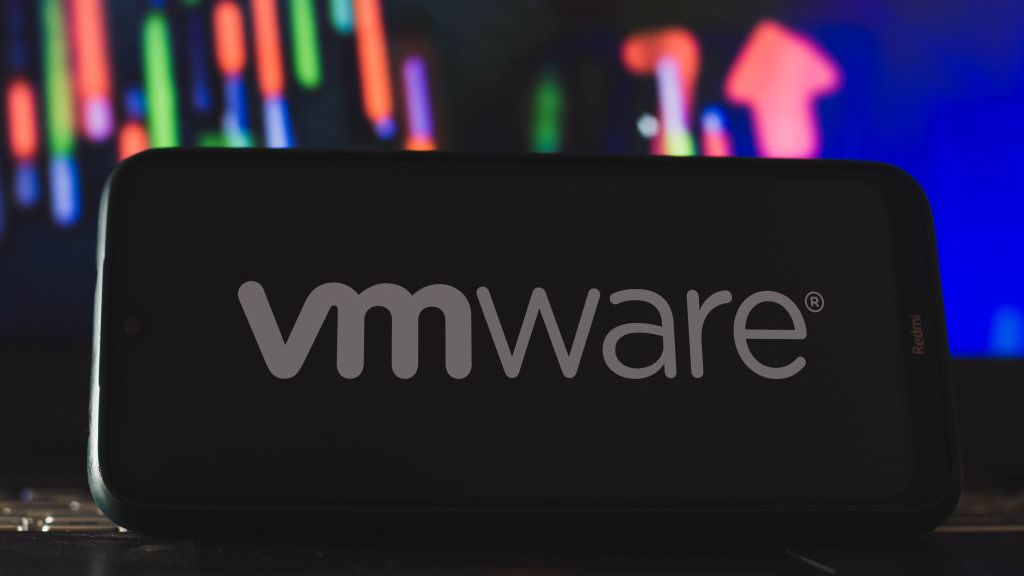Linux-based Cheerscrypt ransomware found targeting VMware ESXi servers
Cheerscrypt malware could cause severe disruption to companies using the virtualisation software


Security researchers have discovered new ransomware targeting vulnerable VMware ESXi servers.
Dubbed “Cheers” or “Cheerscrypt”, the ransomware first hijacks an ESXi server, then launches an encryptor that locates virtual machines and then terminates them with an esxcli command, according to the researchers at Trend Micro.
In a blog post, researchers said the termination of the VM processes ensures that the ransomware can successfully encrypt VMware-related files. They added that this ransomware is similar to ransomware families such as LockBit, Hive, and RansomEXX, which have attacked other ESXi servers in the past.
The Cheers ransomware looks for files with the following filename extensions: .log, .vmdk, .vmem, .vswp, and .vmsn. These file types are connected to ESXi snapshots, log files, swap files, paging files, and virtual disks.
Before encryption occurs, the ransomware will rename each file in a directory to a .Cheers extension, and will add a ransom note, titled 'How to Restore your Files.txt, alongside these. The researchers noted that the encryption fails if access permission for the file was not granted.
Following encryption, it displays a console that contains the data statistics of its attack, including how many files have been encrypted, and how many have been skipped.
The malware’s executable file contains the public key of a matching key pair with the private key being held by the hackers. It uses the SOSEMANUK stream cypher to encrypt files and ECDH to generate the SOSEMANUK key.
Sign up today and you will receive a free copy of our Future Focus 2025 report - the leading guidance on AI, cybersecurity and other IT challenges as per 700+ senior executives
An ECDH public-private key pair is encrypted on the machine through Linux’s /dev/urandom. It then uses the embedded public key and the generated private key to create a secret key, that will be used as a SOSEMANUK key.
According to researchers, decryption is only possible if the malicious actor’s private key is known.
Researchers said that ESXi is a popular target for ransomware attacks. “Compromising ESXi servers has been a scheme used by some notorious cybercriminal groups because it is a means to swiftly spread the ransomware to many devices. Organizations should thus expect malicious actors to upgrade their malware arsenal and breach as many systems and platforms as they can for monetary gain,” they added.
The research comes a week after US security agency CISA warned federal and private organisations to urgently patch or remove five vulnerable VMware products that were being actively targeted by hackers.
Rene Millman is a freelance writer and broadcaster who covers cybersecurity, AI, IoT, and the cloud. He also works as a contributing analyst at GigaOm and has previously worked as an analyst for Gartner covering the infrastructure market. He has made numerous television appearances to give his views and expertise on technology trends and companies that affect and shape our lives. You can follow Rene Millman on Twitter.
-
 Microsoft unveils Maia 200 accelerator, claiming better performance per dollar than Amazon and Google
Microsoft unveils Maia 200 accelerator, claiming better performance per dollar than Amazon and GoogleNews The launch of Microsoft’s second-generation silicon solidifies its mission to scale AI workloads and directly control more of its infrastructure
-
 Infosys expands Swiss footprint with new Zurich office
Infosys expands Swiss footprint with new Zurich officeNews The firm has relocated its Swiss headquarters to support partners delivering AI-led digital transformation
-
 There’s a dangerous new ransomware variant on the block – and cyber experts warn it’s flying under the radar
There’s a dangerous new ransomware variant on the block – and cyber experts warn it’s flying under the radarNews The new DeadLock ransomware family is taking off in the wild, researchers warn
-
 Hacker offering US engineering firm data online after alleged breach
Hacker offering US engineering firm data online after alleged breachNews Data relating to Tampa Electric Company, Duke Energy Florida, and American Electric Power was allegedly stolen
-
 Cybersecurity experts face 20 years in prison following ransomware campaign
Cybersecurity experts face 20 years in prison following ransomware campaignTwo men used their tech expertise to carry out ALPHV BlackCat ransomware attacks
-
 15-year-old revealed as key player in Scattered LAPSUS$ Hunters
15-year-old revealed as key player in Scattered LAPSUS$ HuntersNews 'Rey' says he's trying to leave Scattered LAPSUS$ Hunters and is prepared to cooperate with law enforcement
-
 The Scattered Lapsus$ Hunters group is targeting Zendesk customers – here’s what you need to know
The Scattered Lapsus$ Hunters group is targeting Zendesk customers – here’s what you need to knowNews The group appears to be infecting support and help-desk personnel with remote access trojans and other forms of malware
-
 Impact of Asahi cyber attack laid bare as company confirms 1.5 million customers exposed
Impact of Asahi cyber attack laid bare as company confirms 1.5 million customers exposedNews No ransom has been paid, said president and group CEO Atsushi Katsuki, and the company is restoring its systems
-
 The US, UK, and Australia just imposed sanctions on a Russian cyber crime group – 'we are exposing their dark networks and going after those responsible'
The US, UK, and Australia just imposed sanctions on a Russian cyber crime group – 'we are exposing their dark networks and going after those responsible'News Media Land offers 'bulletproof' hosting services used for ransomware and DDoS attacks around the world
-
 A notorious ransomware group is spreading fake Microsoft Teams ads to snare victims
A notorious ransomware group is spreading fake Microsoft Teams ads to snare victimsNews The Rhysida ransomware group is leveraging Trusted Signing from Microsoft to lend plausibility to its activities
